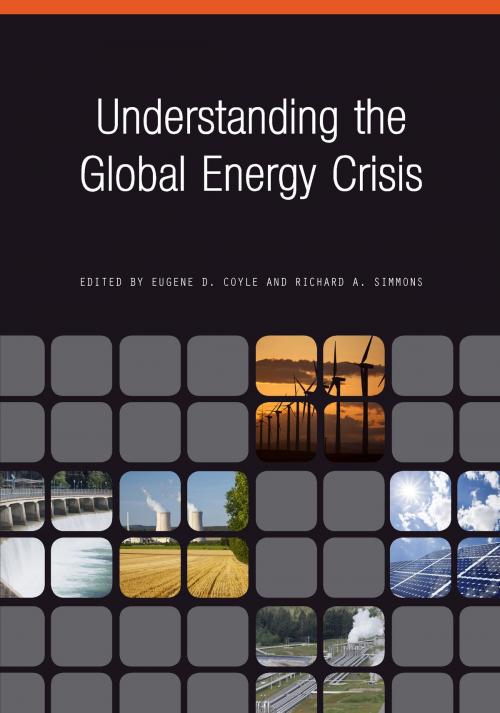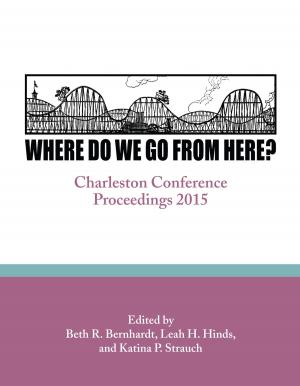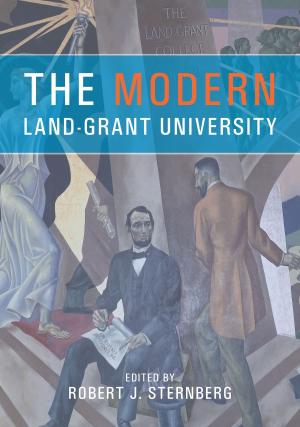Understanding the Global Energy Crisis
Nonfiction, Science & Nature, Technology, Environmental, Social & Cultural Studies, Political Science, Government, Public Policy| Author: | ISBN: | 9781612493107 | |
| Publisher: | Purdue University Press | Publication: | March 15, 2014 |
| Imprint: | Purdue University Press | Language: | English |
| Author: | |
| ISBN: | 9781612493107 |
| Publisher: | Purdue University Press |
| Publication: | March 15, 2014 |
| Imprint: | Purdue University Press |
| Language: | English |
We are facing a global energy crisis caused by world population growth, an escalating increase in demand, and continued dependence on fossil-based fuels for generation. It is widely accepted that increases in greenhouse gas concentration levels, if not reversed, will result in major changes to world climate with consequential effects on our society and economy. This is just the kind of intractable problem that Purdue Universitys Global Policy Research Institute seeks to address in the Purdue Studies in Public Policy series by promoting the engagement between policy makers and experts in fields such as engineering and technology. Major steps forward in the development and use of technology are required. In order to achieve solutions of the required scale and magnitude within a limited timeline, it is essential that engineers be not only technologically-adept but also aware of the wider social and political issues that policy-makers face. Likewise, it is also imperative that policy makers liaise closely with the academic community in order to realize advances. This book is designed to bridge the gap between these two groups, with a particular emphasis on educating the socially-conscious engineers and technologists of the future. In this accessibly-written volume, central issues in global energy are discussed through interdisciplinary dialogue between experts from both North America and Europe. The first section provides an overview of the nature of the global energy crisis approached from historical, political, and sociocultural perspectives. In the second section, expert contributors outline the technology and policy issues facing the development of major conventional and renewable energy sources. The third and final section explores policy and technology challenges and opportunities in the distribution and consumption of energy, in sectors such as transportation and the built environment. The books epilogue suggests some future scenarios in energy distribution and use.
We are facing a global energy crisis caused by world population growth, an escalating increase in demand, and continued dependence on fossil-based fuels for generation. It is widely accepted that increases in greenhouse gas concentration levels, if not reversed, will result in major changes to world climate with consequential effects on our society and economy. This is just the kind of intractable problem that Purdue Universitys Global Policy Research Institute seeks to address in the Purdue Studies in Public Policy series by promoting the engagement between policy makers and experts in fields such as engineering and technology. Major steps forward in the development and use of technology are required. In order to achieve solutions of the required scale and magnitude within a limited timeline, it is essential that engineers be not only technologically-adept but also aware of the wider social and political issues that policy-makers face. Likewise, it is also imperative that policy makers liaise closely with the academic community in order to realize advances. This book is designed to bridge the gap between these two groups, with a particular emphasis on educating the socially-conscious engineers and technologists of the future. In this accessibly-written volume, central issues in global energy are discussed through interdisciplinary dialogue between experts from both North America and Europe. The first section provides an overview of the nature of the global energy crisis approached from historical, political, and sociocultural perspectives. In the second section, expert contributors outline the technology and policy issues facing the development of major conventional and renewable energy sources. The third and final section explores policy and technology challenges and opportunities in the distribution and consumption of energy, in sectors such as transportation and the built environment. The books epilogue suggests some future scenarios in energy distribution and use.















